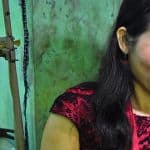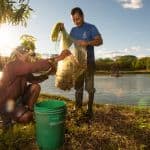Unity During the Pandemic: How the Social Enterprise Community is Coming Together to Survive COVID-19
While the coronavirus pandemic is delivering a crushing blow all over the world, we know that some of the most vulnerable populations are those already living in poverty in emerging markets. According to new research published by United Nations University World Institute for Development Economics Research, “the economic fallout from the global pandemic could increase global poverty by as much as half a billion people, or 8% of the total human population,” marking the first time in 30 years that global poverty has increased.
The pandemic is also delivering a heavy blow to many of the social enterprises working tirelessly to lift people out of poverty around the world. Because these organizations prioritize impact over profit, they are less likely to have the resources to weather this storm, putting their businesses at risk—but also jeopardizing the impact that is at their very core. It is heartbreaking to know that many worthy enterprises will not survive.
Coming Together in the Face of COVID-19
But the social entrepreneurship community is resilient and committed, with organizations coming together to support one another in the face of COVID-19. Many enterprises are responding to the crisis in new and innovative ways, leveraging existing partnerships and forging new ones. These include Cycle Connect in Uganda and PichaEats in Malaysia, both of whom are alumni of Miller Center for Social Entrepreneurship’s accelerator programs.
Cycle Connect finances income-generating assets—including oxen, plows and bicycles—to unlock access and opportunity for rural households living in the last mile. To respond to food shortages resulting from the pandemic, the company rapidly designed a new seed loan program to help rural families stay food secure. And to ensure that healthcare workers could get to the frontlines during Uganda’s transport ban, the organization donated over 100 bicycles to community clinics. Cycle Connect’s funders and impact investors have stepped in with restructured loans and emergency grants during the crisis. Additionally, new partnerships are helping reach more health centers, last-mile farmers and agribusinesses.
PichaEats, a catering company, pivoted its business model not only to survive but to continue its mission of empowering and providing a sustainable living for refugees and asylum seekers. The organization trains refugees as professional chefs and supports them with menus, packaging, marketing and delivery logistics. But with lockdowns in Malaysia, catering orders disappeared. PichaEats responded by launching a sponsorship program—with support from impact investors, fellow social entrepreneurs and corporate donors—that enables refugees to cook from home and deliver meals to front-line workers and people who have lost their jobs. To date, close to 15,000 meals in nearly 20 communities have been distributed.
Providing Resources for Social Enterprises During the Pandemic
On a broader scale, the impact community immediately galvanized to provide tools, resources and funding to help social enterprises survive and continue to fulfill their missions. From guidance to investment, never has the need been greater or more urgent—and the ecosystem has responded accordingly. Examples include:
- Social Capital Markets (SOCAP) shifted its industry-leading Global Impact Summit to a virtual event to inspire investment in positive change and bolster interconnectedness in a time of lockdowns and quarantines.
- NextBillion created and continually updates an incredibly rich resource list: Coronavirus Resources for the Social Impact Sector. Along with COVID-19 news, events and analysis relevant to the sector, the page now includes over 100 links to useful resources, from funding sources to data maps.
- Agora Partnerships and 25+ leading Latin American incubators, accelerators, funds and entrepreneurial support agents have created the Emprendedores Frente al COVID-19 alliance in an effort to share information, coordinate activities and align efforts to better help Latin American impact entrepreneurs weather challenges created by the pandemic.
- The COVID Response Alliance for Social Entrepreneurs, an unprecedented collaboration among more than 40 global organizations including Aspen Network of Development Entrepreneurs (ANDE), the Skoll Foundation and USAID’s Center for Innovation and Impact, is coordinating a response to help social entrepreneurs overcome the challenges brought on by COVID-19.
- The Center for the Advancement of Social Entrepreneurship (CASE) at Duke University’s Fuqua School of Business launched Covidcap.com, a searchable database of over $1 trillion in emergency relief funds, with support from a team of global consultants and volunteers, and in partnership with institutions worldwide.
How Miller Center is Supporting Social Enterprises
In the early days of this crisis, we at Miller Center were in constant communication with our community of social enterprises around the world. They needed urgent support to stay afloat and keep their crucial social impact alive through the pandemic. Our staff and team of Silicon Valley executive mentors quickly pivoted to produce publicly available materials to support social entrepreneurs in adapting their business models, whether they have gone through our programs or not. These webinars, content and programs focus on such topics as effective organizational leadership and communications, crisis cash-flow management, rapid business plan pivots, and scenario planning for whatever comes after the pandemic.
Although it was clear that mentorship and cash controls were extremely valuable to the enterprises we support, an injection of bridge funding was also essential for many of these businesses to execute their pivots and continue their impact. Working with our longtime partner Beneficial Returns, we quickly developed the concept for the Truss Fund—an emergency bridge loan facility managed by Beneficial Returns that will administer a total of $1 million to selected social enterprises that are alumni of Miller Center’s Global Social Benefit Institute. While this is a small fund relative to the tremendous need, it is providing lifelines to the four organizations selected to receive Truss Fund bridge loans so far:
- iKure, which delivers tech-enabled primary healthcare, wellness and prevention services to underserved communities in India, has touched over 8 million lives. In response to the outbreak, the company is ensuring continuity of care through telemedicine services, COVID awareness and mental health support. Funding will help fill the gap that has been created by delays in customer payments and postponement of fundraising activities.
- Limited Resource Teacher Training (LRTT) places experienced teachers from the U.S. and Australia to train teachers in Africa, Asia and the Caribbean. Schools that host an LRTT Fellow report lower teacher turnover, lower teacher absenteeism and enhanced educational outcomes for students. The Truss Fund’s support will allow the organization to maintain essential operations so that it can resume placements once international travel reopens.
- NUCAFE—the National Union of Coffee Agribusiness and Farm Enterprises in Uganda—has pioneered a model in which smallholder farmers collectively own and operate their coffee farms, moving farmers further up the coffee value chain and thereby increasing their income. The organization’s current membership exceeds 200 cooperatives representing more than 1.5 million individual coffee farmers. This loan will enable NUCAFE to continue paying farmers prospectively for coffee.
- Pollinate Group empowers women entrepreneurs to distribute products that improve health and wellbeing for the most neglected communities in India and Nepal through a door-to-door last-mile distribution network. The company has trained 650 women who have reached over 600,000 people. The Truss Fund loan will allow Pollinate to survive until the lockdowns are lifted and it can resume in-person sales and tap a $1 million contract from the Dutch government.
Potential applicants (limited to alumni of Miller Center’s Global Social Benefit Institute) can get more information and apply for the Truss Fund here.
Although COVID-19 is having a devastating effect, social entrepreneurs are gritty and eternally optimistic. They have built enterprises under extremely difficult circumstances to fight a myriad of social problems and injustices and provide a better future for the most vulnerable populations on earth. The pandemic is a crushing setback, but it is hardly the end. We have faith in and a firm commitment to the model of development through enterprise, the entrepreneurs who drive that model and the ecosystem that sustains it. And we are proud to be a part of this vibrant, committed and resilient community.
Pamela Roussos is Chief Community Officer at Miller Center for Social Entrepreneurship.
Photo courtesy of Cycle Connect.
Sorry. This form is no longer available.
- Categories
- Coronavirus, Social Enterprise



